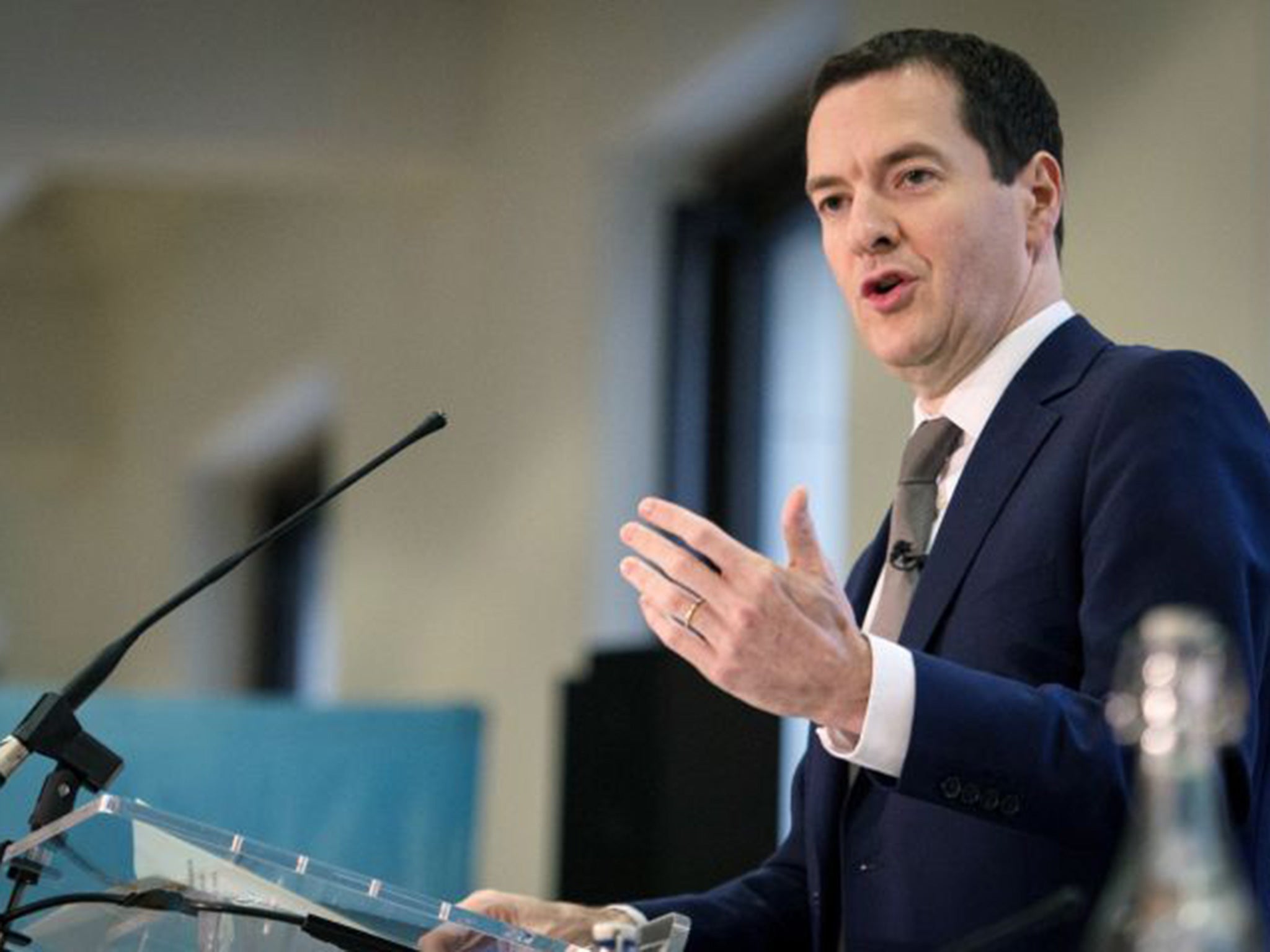George Osborne needs 'Christmas miracle' to meet this year’s deficit target
Unexpected rise in borrowing last month means Chancellor’s plans are unravelling

A shock rise in borrowing has left the Chancellor on course to overshoot his deficit-cutting target by more than £10bn this year.
The £1.3bn rise to £14.2bn in November – 10 per cent ahead of the same month last year – confounded City predictions of a £1bn fall in the deficit and takes cumulative borrowing for the eight months of the financial year so far to £66.9bn. This is just £2bn below the latest £68.9bn target for the entire year set by the Office for Budget Responsibility financial watchdog in the Autumn Statement, before the impact of moving housing associations on to the public balance sheet is taken into account.
Paul Hollingsworth, UK economist at Capital Economics, said George Osborne needed a “Christmas miracle” to hit the deficit target. He added: “It now looks almost impossible for Mr Osborne to meet the OBR’s public borrowing forecast for the fiscal year as a whole. If we assume that the trend seen so far this year continues, then borrowing for 2015/16 as a whole is set to come in at more like £81bn.”
The public finances were flattered a year earlier by a host of banks paying out £1.1bn in fines for forex-rigging. But even stripping out this one-off, the improvements are sluggish despite a year of steady economic growth.
Overall receipts grew by £500m, or 1.1 per cent, to £46.3bn over the month, mainly accounted for by a £400m surge in corporation tax compared with last year. But VAT and income tax receipts grew far more slowly and the figures showed government borrowing rising more than twice as quickly as the tax take last month. Central government spending hit £58bn in November – up £1.6bn, or 2.9 per cent, compared with 12 months earlier.
The detailed figures showed “other” spending – mainly government departments – up £1.2bn, although the Government blamed this on a payment to the World Bank by the Department for International Development.
Experts said the triumphant fiscal forecasts unveiled by the Chancellor less than a month ago – bolstered by factors such as lower debt interest payments and changes to tax receipt forecasts – were already beginning to unravel.
ING Bank’s James Knightley said: “Things are moving in the right direction, just more slowly than hoped … A surplus of 0.5 per cent of GDP in 2019/20 looks a real struggle.”
Prospects for the public finances will now largely rest on January, traditionally a surplus month for the Treasury coffers when self-assessment returns flood in.
Sam Hill, senior UK economist at RBC Capital Markets, said: “Crunch time will come in the new year when the bulky self-assessment tax receipts are received. So to a certain extent the volatility of these borrowing figures on a month-by-month basis means it is still too soon to lock in pessimism about the deficit target being met. Nevertheless, a strong January from self-assessment tax return payments is looking increasingly important.”
Subscribe to Independent Premium to bookmark this article
Want to bookmark your favourite articles and stories to read or reference later? Start your Independent Premium subscription today.

Join our commenting forum
Join thought-provoking conversations, follow other Independent readers and see their replies